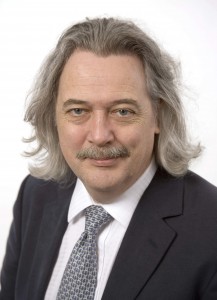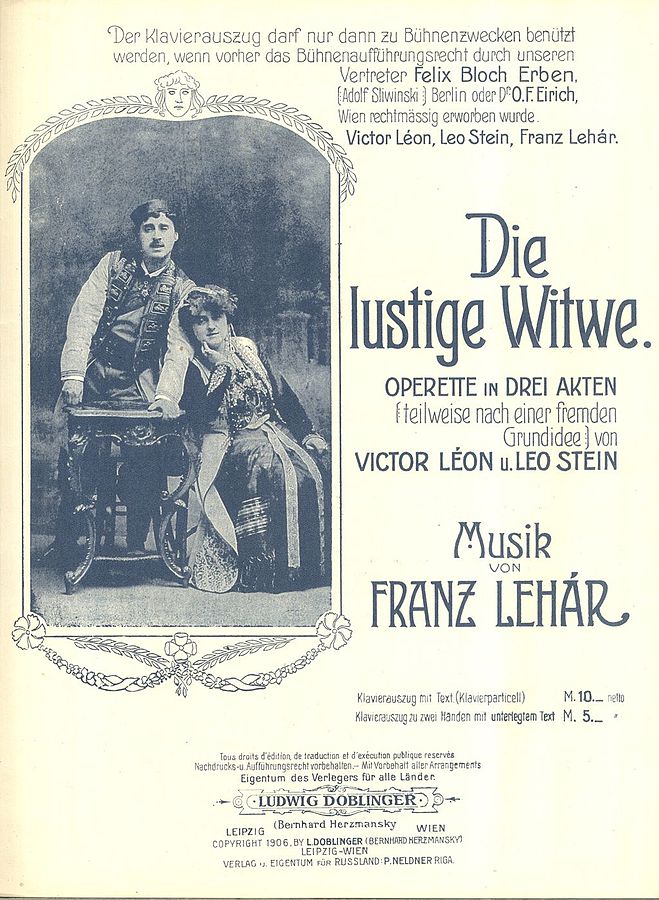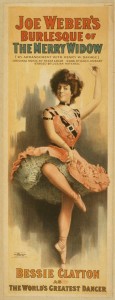Cosmopolitan operetta
On the 24 and 25 November, we were privileged to welcome Derek Scott as the first guest speaker for this year’s programme of Hartley Residencies in Music. Master’s student Catherine Garry reports:

Launched in February 2015, the Hartley Residencies are a series of two-day events during which an eminent scholar is invited to share and discuss their current research. These events happen three times a year, and are intended to broaden the knowledge and scholarly horizons of both our staff and postgraduate students. I was lucky enough to be invited as an undergraduate to Laura Tunbridge’s residency in April 2015 – which I thoroughly enjoyed – so I was excited to participate in a residency again as a postgraduate.
Derek Scott is a Professor of Critical Musicology from the University of Leeds. His current research explores 20th century German operetta production and reception in relation to cosmopolitanism and cultural communication. This was the focus of the two day residency.
The residency began on Tuesday with an introductory seminar for postgraduate students. The seminar explored contemporary scholarly thought surrounding music and cosmopolitanism, with discussions based on two articles by Martin Stokes and Dana Gooley. I found this seminar particularly stimulating and probably enjoyed it most out of all of the events over the two-day residency. All of the students actively engaged with discussions which made for a lively and thought-provoking session. Everyone appreciated Derek’s interest in our own thoughts and ideas – he encouraged our opinions, even when they contradicted his own. One of the main reasons why I found the seminar so enjoyable is because it stimulated ideas for my own Masters research project. This year, I am looking at the reception of Italian opera in London in the late 18th century; it was really interesting to see how historic issues surrounding cultural transfer and nationalism – issues that are central to my dissertation project – continue to be relevant today.

Later that afternoon, Derek gave his keynote speech: “The Astonishing Appetite for German Operetta in London and New York.” Derek’s enthusiasm and passion for the topic was clearly apparent and inspirational for those seeking motivation for their own research this year. I found it particularly interesting to hear Derek’s views on how operetta engaged with modernity, technological developments and social changes of the 20th century. I also agreed wholeheartedly with Derek’s argument that without a deeper understanding of operetta and operetta reception, we cannot fully understand the development of 20th century musical theatre in general. Again, this discussion sparked ideas for my own research project; in particular, Derek’s talk encouraged me to think about theatrical adaption as a means of enhancing knowledge of social and cultural values.

On Wednesday afternoon, after Derek had delivered a guest undergraduate lecture and met with various students individually to give advice on their research, the staff and postgraduate students regrouped to enjoy another formal presentation, this time by one of our own lecturers, Dr Valeria de Lucca. Valeria presented ideas from her most recent project – “Critical Response to Silver Age Operetta in Italy” – discussing the cultural friction between opera and operetta and the effects of foreign imports on the Italian operatic scene. One of my fellow students, Daisy Smeddle, found this particularly interesting, and has since decided to change her Masters dissertation project to explore staging techniques used in “Silver Age” Italian operetta. Following Valeria’s presentation, the final event of day was a departmental roundtable on music and cosmopolitanism, chaired by our head of department Professor Francesco Izzo. This was a perfect way to conclude Derek’s residency – the staff involved in the roundtable participated in a thoughtful discussion that encompassed ideas discussed over the previous two days. It was insightful for the students to see leading academics interact with each other and debate their thoughts and opinions on a topic that is dominant in musicology research today.
Overall, I found the two-day residency extremely enjoyable. Derek’s passion for his current research and his stimulating thoughts on music and cosmopolitanism were inspirational, sparking various ideas for my own research this year and in the future. I know I speak on behalf of all the postgraduate students when I say that it was an exciting opportunity to engage directly with a scholar from a different institution working at the top of their musicological field, and the experience provided valuable insight into the life and workings of academia. I look forward to the rest of this year’s Hartley Residencies programme in the Spring term, welcoming Katherine Ellis from the University of Bristol in February and Klaus Pietschmann from Johannes Gutenberg-Universitaet Mainz in April.

